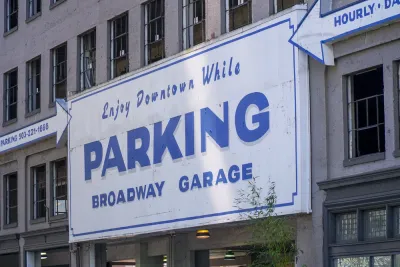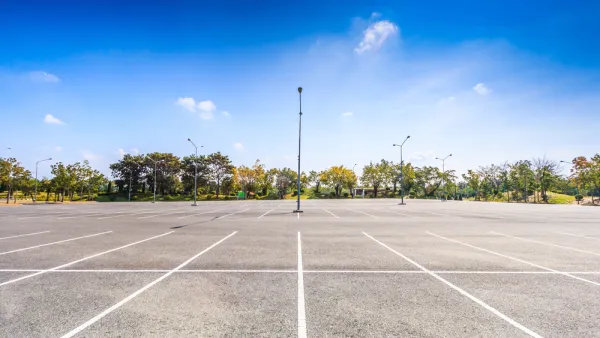Rather than trying to make parking lots with expensive surfaces that cost to maintain, Portland should eliminate its parking minimums, according to this article.

Surface parking lots in urban areas cause a number of different problems. They take up space that could be used for housing, they make it cheaper to drive, which effects a city’s air quality, they add to the urban heat shielding of the city, and, because they don't absorb rain, they put pressure on water systems. Portland officials have proposed legislation to mandate developers solve two of these problems in future developments by forcing developers to use permeable surfaces. This would mean these spaces wouldn't reflect as much heat or push as much water in to sewers, but they wouldn't come cheap.
"If Portland planners are honestly concerned about urban heat and the environment then they should propose eliminating minimum parking requirements," Tony Jordan argues in PDX Shoupistas. This strategy, recently employed by Mexico City, would eliminate some of these lots altogether, and instead of making development more expensive, which would in turn drive up the cost of housing, it would make some developments less expensive. Accomplishing two goals in a city that is becoming more expensive.
"Planners and officials might be worried that neighbors will complain about developments with fewer parking stalls, but maybe it’s time to show city officials and planners that people concerned about housing affordability, climate change, and traffic safety can make just as much, or maybe more, noise," Jordan writes.
FULL STORY: Portland Plans To Make Parking More “Green” And More Expensive

National Parks Layoffs Will Cause Communities to Lose Billions
Thousands of essential park workers were laid off this week, just before the busy spring break season.

Retro-silient?: America’s First “Eco-burb,” The Woodlands Turns 50
A master-planned community north of Houston offers lessons on green infrastructure and resilient design, but falls short of its founder’s lofty affordability and walkability goals.

Delivering for America Plan Will Downgrade Mail Service in at Least 49.5 Percent of Zip Codes
Republican and Democrat lawmakers criticize the plan for its disproportionate negative impact on rural communities.

Test News Post 1
This is a summary

Test News Headline 46
Test for the image on the front page.

Balancing Bombs and Butterflies: How the National Guard Protects a Rare Species
The National Guard at Fort Indiantown Gap uses GIS technology and land management strategies to balance military training with conservation efforts, ensuring the survival of the rare eastern regal fritillary butterfly.
Urban Design for Planners 1: Software Tools
This six-course series explores essential urban design concepts using open source software and equips planners with the tools they need to participate fully in the urban design process.
Planning for Universal Design
Learn the tools for implementing Universal Design in planning regulations.
EMC Planning Group, Inc.
Planetizen
Planetizen
Mpact (formerly Rail~Volution)
Great Falls Development Authority, Inc.
HUDs Office of Policy Development and Research
NYU Wagner Graduate School of Public Service





























